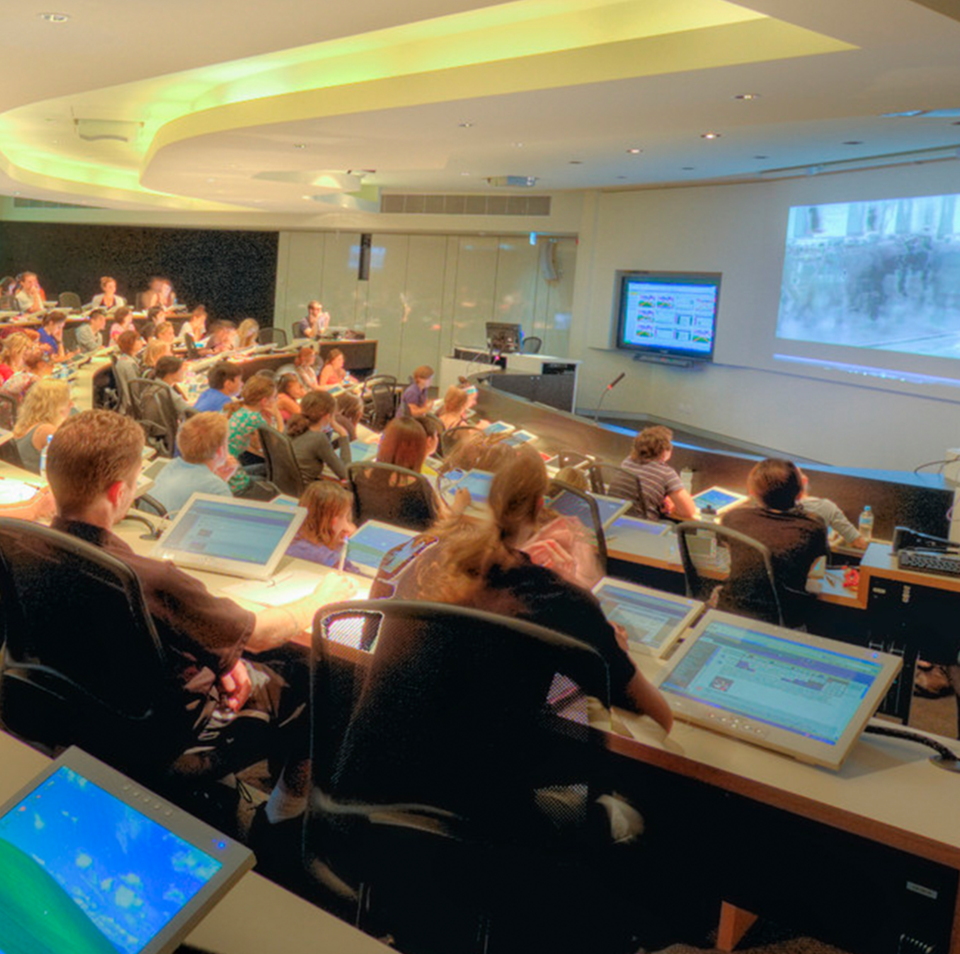
This article originally appeared in World Economic Forum, by author Mark Dodgson, on 9 August 2017.
Artificial Intelligence (AI) is a technology whose time has come.
As AI surpasses human abilities in Go and poker – two decades after Deep Blue trounced chess grandmaster Garry Kasparov – it is seeping into our lives in ever more profound ways. It affects the way we search the web, receive medical advice and whether we receive finance from our banks.
The most innovative AI breakthroughs, and the companies that promote them – such as DeepMind, Magic Pony, Aysadi, Wolfram Alpha and Improbable – have their origins in universities. Now AI will transform universities.
We believe AI is a new scientific infrastructure for research and learning that universities will need to embrace and lead, otherwise they will become increasingly irrelevant and eventually redundant.
Through their own brilliant discoveries, universities have sown the seeds of their own disruption. How they respond to this AI revolution will profoundly reshape science, innovation, education – and society itself.
Deep Mind was created by three scientists, two of whom met while working at University College London. Demis Hassabis, one of Deep Mind’s founders, who has a PhD in cognitive neuroscience from UCL and has undertaken postdoctoral studies at MIT and Harvard, is one of many scientists convinced that AI and machine learning will improve the process of scientific discovery.
It is already eight years since scientists at the University of Aberystwyth created a robotic system that carried out an entire scientific process on its own: formulating hypotheses, designing and running experiments, analysing data, and deciding which experiments to run next.
Complex data sets
Applied in science, AI can autonomously create hypotheses, find unanticipated connections, and reduce the cost of gaining insights and the ability to be predictive.
AI is being used by publishers such as Reed Elsevier for automating systematic academic literature reviews, and can be used for checking plagiarism and misuse of statistics. Machine learning can potentially flag unethical behaviour in research projects prior to their publication.
AI can combine ideas across scientific boundaries. There are strong academic pressures to deepen intelligence within particular fields of knowledge, and machine learning helps facilitate the collision of different ideas, joining the dots of problems that need collaboration between disciplines.
As AI gets more powerful, it will not only combine knowledge and data as instructed, but will search for combinations autonomously. It can also assist collaboration between universities and external parties, such as between medical research and clinical practice in the health sector.
The implications of AI for university research extend beyond science and technology.
Philosophical questions
In a world where so many activities and decisions that were once undertaken by people will be replaced or augmented by machines, profound philosophical questions arise about what it means to be human. Computing pioneer Douglas Engelbert – whose inventions include the mouse, windows and cross-file editing – saw this in 1962 when he wrote of “augmenting human intellect”.
Expertise in fields such as psychology and ethics will need to be applied to thinking about how people can more rewardingly work alongside intelligent machines and systems.
Research is needed into the consequences of AI on the levels and quality of employment and the implications, for example, for public policy and management.
When it comes to AI in teaching and learning, many of the more routine academic tasks (and least rewarding for lecturers), such as grading assignments, can be automated. Chatbots, intelligent agents using natural language, are being developed by universities such as the Technical University of Berlin; these will answer questions from students to help plan their course of studies.
Virtual assistants can tutor and guide more personalized learning. As part of its Open Learning Initiative (OLI), Carnegie Mellon University has been working on AI-based cognitive tutors for a number of years. It found that its OLI statistics course, run with minimal instructor contact, resulted in comparable learning outcomes for students with fewer hours of study. In one course at the Georgia Institute of Technology, students could not tell the difference between feedback from a human being and a bot.
Global classroom
Mixed reality and computer vision can provide a high-fidelity, immersive environment to stimulate interest and understanding. Simulations and games technology encourage student engagement and enhance learning in ways that are more intuitive and adaptive. They can also engage students in co-developing knowledge, involving them more in university research activities. The technologies also allow people outside of the university and from across the globe to participate in scientific discovery through global classrooms and participative projects such as Galaxy Zoo.
As well as improving the quality of education, AI can make courses available to many more people. Previously access to education was limited by the size of the classroom. With developments such as Massive Open Online Courses (MOOCs) over the last five years, tens of thousands of people can learn about a wide range of university subjects.
It still remains the case, however, that much advanced learning, and its assessment, requires personal and subjective attention that cannot be automated. Technology has ‘flipped the classroom’, forcing universities to think about where we can add real value – such as personalised tuition, and more time with hands-on research, rather than traditional lectures.
You can read the full article here.



